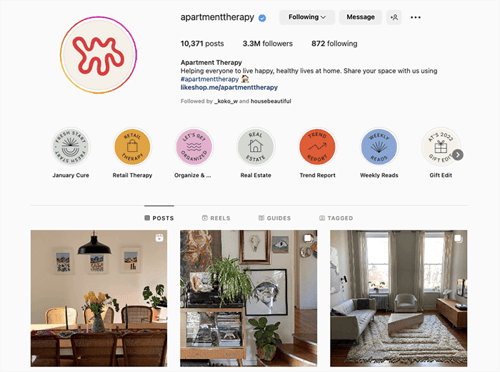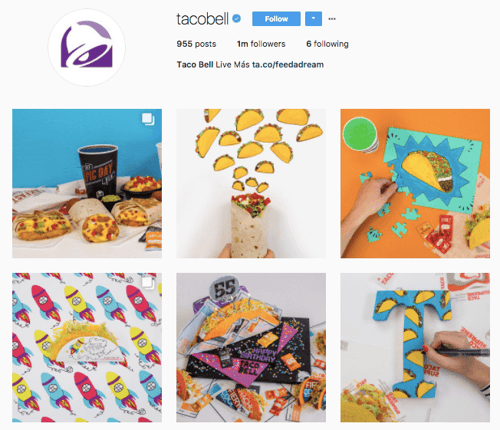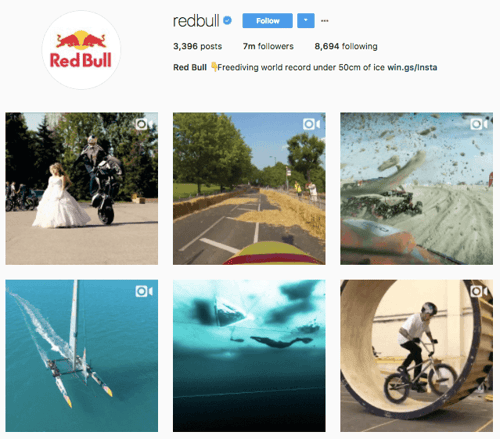Welcome to the New Year! If you're not using Instagram for your business in 2018, you're so 2017. I know what you're saying, "I just mastered Facebook and Twitter. Why do have to do this as well?" The answer is simple: Because you have to. And to learn why and how, our friends of HubSpot have offered up their thoughts on how to do this. There's lots of good info here and so stay tuned for some other posts on this important topic.
Since its launch in 2010, Instagram has taken the world by storm. It seems like everyone -- and their dog -- is on the platform. You may be thinking, I love scrolling through my personal feed, but I don’t know if my brand is the right fit for the social network. Well, take a look at these stats: 28% of all U.S. adults use Instagram, and more than 75% of the app’s user base is made up of people living outside the U.S. With more than 700 million active monthly users, the platform isn’t just for personal use anymore. Instagram is a full-fledged, global platform that allows brands to humanize their content, recruit new talent, showcase products, and inspire their audience.
How to Create an Instagram Marketing Strategy
You know you need to be on Instagram, you want to be on Instagram, but you don’t know what to do once you’re on Instagram. If this sounds like you, you’re not alone. Many businesses feel pressured to be on every social media platform without thinking through their strategy. Since Instagram is very different from other popular social sites, it requires a different marketing strategy. Think through the topics below to start developing your brand’s own unique style.
Determine Your Instagram Audience
Just like on any other platform, it’s important to determine the audience you want to reach before you begin marketing on Instagram. If you already have other marketing strategies in place, you can draw from those to help. Some helpful factors to consider when narrowing down your target Instagram audience are age, location, gender, income, interests, motivations, and pain points.
Don’t know where to start? Monitor popular event and interest hashtags that are related to your business. Find out who’s using and engaging with the hashtags and check out their profiles. You can also take a look at your competitor’s followers. Sometimes determining your audience is easier than you think.
Competitive Analysis for Instagram
After you determine your Instagram audience, do a competitive analysis to see what other marketers in your field are posting. If you already know your top competitors, start with searching for their Instagram profiles. If not, try searching for terms related to your business or industry to find similar accounts. Conduct a quick audit of related accounts to see what types of posts are getting the highest amount of engagement, what popular hashtags they are using, what kinds of captions they are writing, how often they are publishing, and how quickly they are growing. This information will serve as a benchmark as you start growing your own account.
While you’re auditing your competitors’ existing content, be sure to take note of any opportunities they might have missed. Adding unique content into the mix will help your business to stand out from the rest.
Setting Up an Editorial Calendar
On average, brands post about six images per week on Instagram -- that adds up to over 300 posts per year! With that many posts, it can be difficult to keep track of all the content you need to post as well as what you’ve already posted. Creating an editorial calendar is a helpful way to cut down on the amount of time required to manage your Instagram presence. You can fill in your calendar with some of the popular Instagram post types discussed earlier and plan out your captions, hashtags, and posting times in advance. Your editorial calendar is also a great place to record any key events you want to highlight on your Instagram account such as new product launches or special offers. Without an editorial calendar, you can be left frantically trying to find any content to post instead of keeping an eye out for real-time opportunities.
Building a Consistent Brand on Instagram
Random or disjointed content will confuse your audience and will likely cause your account to lose followers. To prevent this, it’s important to maintain a consistent brand aesthetic on your Instagram account. To determine what this looks like, start by thinking about your brand personality. What are your brand values? Are you bold, playful, gritty, adventurous?
For example, Apartment Therapy took the popular concept of #foodporn, delicious looking meals laid out in an appealing way, and applied it to apartments. Its brand personality is bright, clean, and organized, and its account reflects all three of those traits. Ideally, someone should be able to see a picture in their feed and instantly know that it’s from your brand just by looking at the photo.

Taco Bell is another great example of sticking to a brand aesthetic. Its feed focuses on the bold, on-the-go lifestyle of its millennial audience and features fun images to drive engagement with its target.

Once you determine your brand personality, you can begin to refine your content to match. This can even apply to the color palette used in your photos.
You should also aim to post images with your brand narrative in mind. Including compelling stories in your captions can make your brand more relatable. For example, Red Bull’s feed features plenty of high-energy images and videos that add to its brand’s story.

How to Convert Instagram Followers Into Customers
Once you establish a dedicated follower base you can start to convert those followers into paying customers. There are several ways to do this including:
1) Promotions: Deals, discounts, BOGOs, and other promotional offerings are a great way to drive first-time sales with your Instagram audience. Be sure to mention exactly what is needed to receive the promotional offer and include when the offer expires to create a sense of urgency.
2) Contests: What’s a better way to make someone a customer than letting them try your product? Promote contests by asking users to follow your account or post content with a specific hashtag to enter.
3) Charity: According to a recent survey, 81% of millennials expect companies to make a public commitment to giving back. Doing so can build affinity for your brand and help turn followers into customers. For example, Gap partnered with The Global Fund to help fight AIDS in Africa. Since 2006, it has helped raise over $130 million.
4) Teasers: Instagram is a great platform to show your audience glimpses of new products before they become available. While you don’t want to spam your followers’ feeds with only product photos, a few images can build excitement.
5) Launch a Product Live: For certain launches, it may even make sense to showcase a new product or service using Instagram Live. You can quickly drive users to purchase by including a purchase link in your bio.
Up next ... How to use Instagram Influencer Marketing to grow your business.





